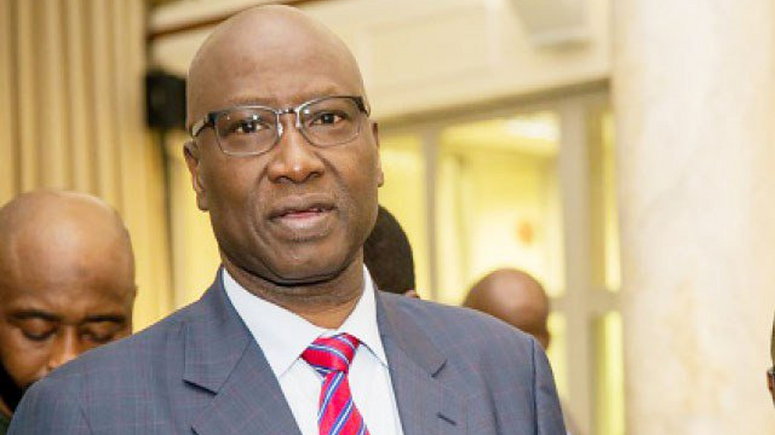The Secretary to the Government of the Federation (SGF) Mr Boss Mustpha, says collaboration is key to the success of the national response to the COVID-19 pandemic.
Mustapha, also Chairman, Presidential Steering Committee (PSC) on COVID-19, stated this at the quarterly meeting of Nigeria Health Commissioners forum, on Thursday in Abuja.
The forum’s theme is “Building a stronger health sector in Nigeria through collaboration and strategic partnership.”
The objective of forum is primarily to discuss how to strengthen the health system at sub-national levels, toward achieving the Universal Health Coverage (UHC).
The SGF noted that the different levels of government in the country had their specific responsibilities under the current legislation, but that some responsibilities were shared.
“Those that are shared by the state government and the federal, unless you have a form of partnership between the two types of government, you will find yourself either replicating the same thing or duplicating it.
“And that would amount to a total waste of resources.
“But if we are collaborating, you will know exactly what each segment is doing and you will be able to apportion resources proportionately,” he explained.
According to him, the COVID-19 pandemic exposed the weaknesses of the country’s health system, and that the story would have been different in the country if not for the collaboration of states and partners.
He noted that this was the best time for the country to recalibrate its health sector.
He added that there was need to seize this opportunity to ensure that the health system was strengthened post COVID-19.
Mustapha said for the national response to be effective, therefore, all stakeholders including the national and sub-national entities must play their roles in a complementary manner because the lives of Nigerians remained very precious and their safety was their responsibility.
“The race against COVID-19 is a marathon and we should never become weary. Research and science have played their parts in taking the battle against the virus to the vaccines stage,” he noted.
He, however, said global vaccine nationalism was still ragging but the government had succeeded in accessing millions of doses of vaccines through partnership and diplomatic efforts.
“The acquisition of sufficient doses that will enable us vaccinate 70 per cent of our population is in progress. As of date millions of Nigerians have been vaccinated fully. Only recently the second round of vaccination was launched,” he added.
The SGF said the Federal Government would soon embark on mandatory vaccination for all employees in the civil service.
“One of the reasons why we want to do that with the federal civil service, is because they will be traveling on behalf of the nation.
“Assuming the American government said, you can’t come into their their country unless you’re vaccinated. So, you have to be vaccinated.
“So, it’s a sequential thing and we are taking one step at a time, because, we realise we don’t have sufficient vaccines in the country at the moment,” he stressed.
The Executive Secretary, National Health Insurance Scheme (NHIS), Prof. Mohammed Sambo, appealed to the president to accelerate the process of assenting to a bill that had already been passed by NASS which, he noted would help UHC.
Dr. Jeremie Zoungrana, Country Director for Nigeria at Bill and Melinda Gates Foundation Africa, noted that the country’s response to the COVID19 pandemic had shown that the country had put health in the forefront of its development objectives.
Zoungrana added that the Bill and Melinda Gates Foundation would continue to support the country in strengthening the health system.
Dr. Olumide Okunola, Senior Health Specialist at the International Finance Corporation of the World Bank Group, said all the state commissioners of health had gathered at the forum to make sense of the complexities of the country’s health sector.
In her remarks, Cross River Health Commissioner, Dr Betta Edu, who spoke on behalf of the commissioners at the forum, said they had attended the event to discuss the way forward for the health sector at the state level.
Edu added that they would not be changes in the country’s health indices if the states were not actively involved.
The meeting focused on health issues such as the Basic Health Care Provision Fund, strengthening Primary Health Care, HIV/AIDS control, UHC, Health Insurance, as well as various high impact interventions being implemented either directly or with development partners.
The meeting is expected to identify challenges and implementation of partnership support at the subnational level, and measures to address the challenges.



